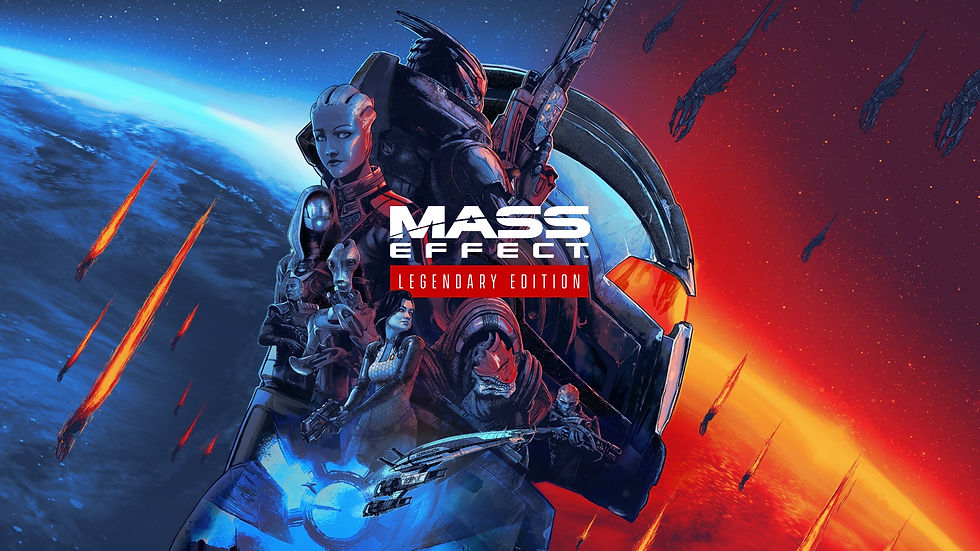
The year is 2007, two years after the launch of the Xbox 360. Game developers are starting to find their grove working with the new hardware and have been knocking out hit after hit after hit.
Then a little company called BioWare rolls up to the show (I’m kidding -- BioWare were already gods at this point… My, how the mighty have fallen) and drops a title called Mass Effect onto the unworthy masses.
What followed was a galaxy-spanning adventure that would make Gene Roddenberry (creator of Star Trek for all of you uncultured swine) swoon. It had action, it had romance, it had mystery, it had gun play, it had aliens, it had everything but the proverbial kitchen sink. It was glorious.
Mass Effect spawned two sequels and cashed out to become what is arguably the greatest trilogy in gaming history (that’s even including the lackluster ending).
Fourteen years later, BioWare is a shadow of its former self. It’s misfired twice in the form of Mass Effect: Andromeda (we aren’t going into detail on that particular dumpster fire in this post, although I might do one on it in the future), and Anthem, yet another effort by the videogame industry to market Triple-A games as “live services” (just typing phrase that makes me want to throw up a little bit).
So what is a company to do when it finds itself in this kind of predicament? The answer should be obvious… “Remaster” what it created in its heyday and make everyone pay for it all over again!
Look, I’m not arguing that it’s a good deal. The original three games, plus all the DLC (downloadable content) that BioWare had produced for them, wrapped up in a neat little package for the low-low price of sixty bucks (even though I already bought them when they were first released) is nothing to sneeze at. The layer of shellac they threw across the graphics is a secondary concern in my opinion.
My point is that rather than creating and innovating, boldly going (as it were) into new territory, they’ve settled for retreading hallowed ground, knowing that people will pay for it (I certainly did).
This has become a trend in the industry, and an alarming one at that. Companies like Gearbox and Bethesda, rereleasing games like Borderlands and Dishonored (respectively) in so-called “Game of the Year” editions just to squeeze a few more bucks out of their IP.
With so many Triple-A titles failing these days, I suppose it’s not an unreasonable business model, but my problem with it is not the rereleases themselves. It’s the “why” behind these companies being forced to do this.
Over the past decade or so, developers and publishers (fucking Electronic Arts) have done everything they can to maximize profit at the expense of the consumer. Microtransactions, cut content, shitty QA, rushed releases, all aimed at making an extra buck.
Then they wonder why no one is buying what they’re selling (but that’s another post).
Rather than accept that consumers don’t want this shit and try to design a better product, they try to dial it in to an “acceptable” level and rerelease games from an era when none of that stuff existed.
Although, if earnings calls and stock prices are to be believed, for all the uproar and bad press these companies are getting, they’re still making obscene amounts of money (we’re talking billions here) from these practices.
I’m inclined to believe that it’s mostly the publishers that are responsible, given the rate that they’re consuming talent, and key developers are leaving for greener pastures (but again, that’s a different post).
Getting back to my main point, nostalgia has become an important part of the video games industry, and it’s a part they’re targeting more and more. I can tell you almost every single game I owned as a kid. They were well-designed, they were well-executed, but most of all, they were fun.
If you asked me today, I couldn’t tell you what games I’ve even played in the last six months, let alone what ones I have on my shelf. That’s how interchangeable they’ve all become.
Call me cynical if you will, but I’m firmly of the mind that the Mass Effect Legendary Edition was nothing more than a cash grab from a company that desperately needed to turn some profits and get some good PR.
And I bought it, hook, line, and sinker.

Well, to be fair, all of modern American industry is focused on squeezing every last farthing of profit from every customer interaction, a practice especially facilitated by digitalization— before the computing amd networking power existed to track every twitch of the consumer’s left pinky, purveyors of goods had to just charge whatever seemed about right and would keep the lights on. Digital products are by far the most susceptible to nano-gouging (a hyphenation I just made up to describe the commercial death-by-a-billion-cuts you mentioned above). I gave up on video games years ago when I realized (A) they’re a complete waste of time and (B) the game companies had started hiring neurologists to help them design more addictive games. So…